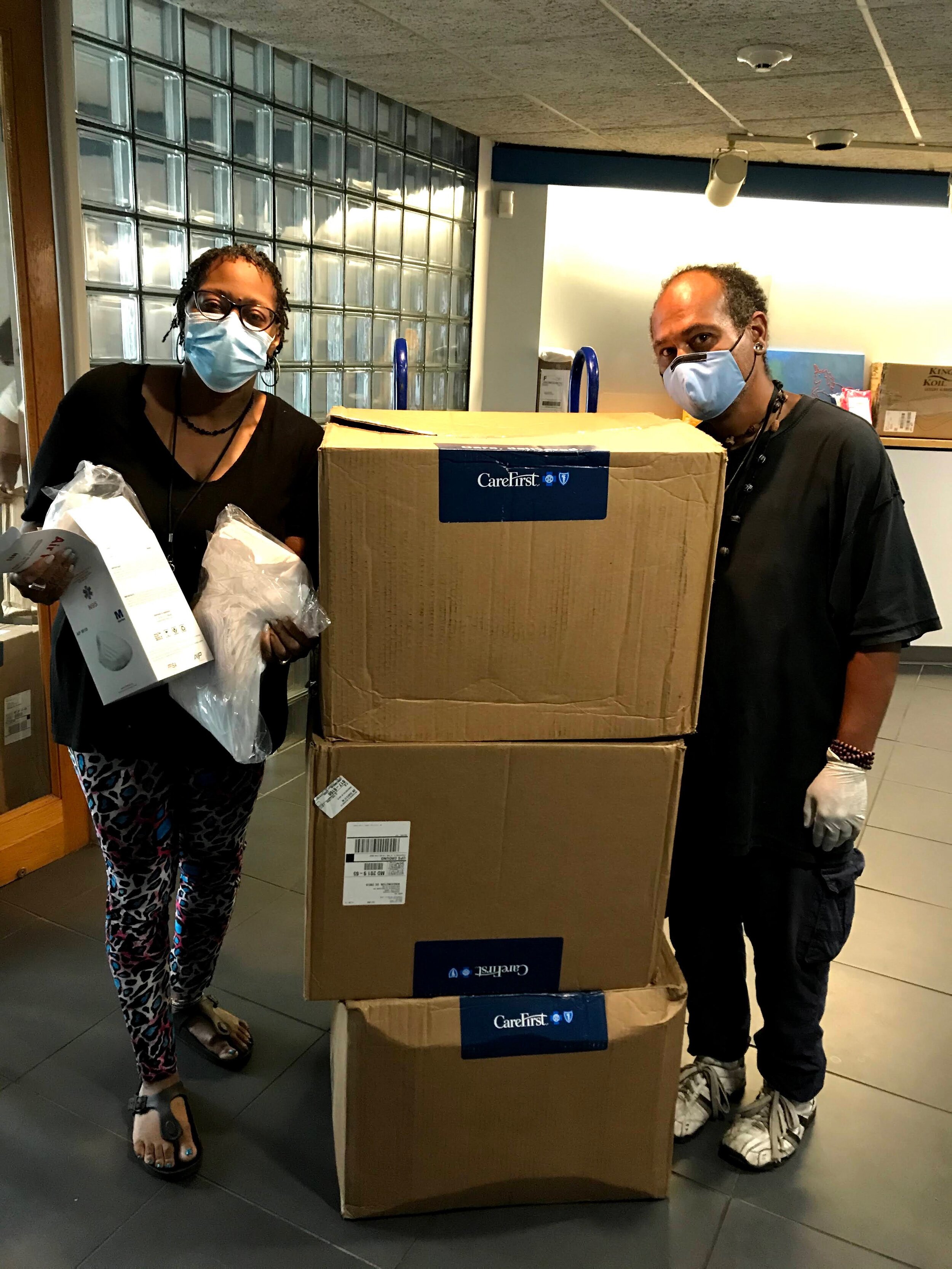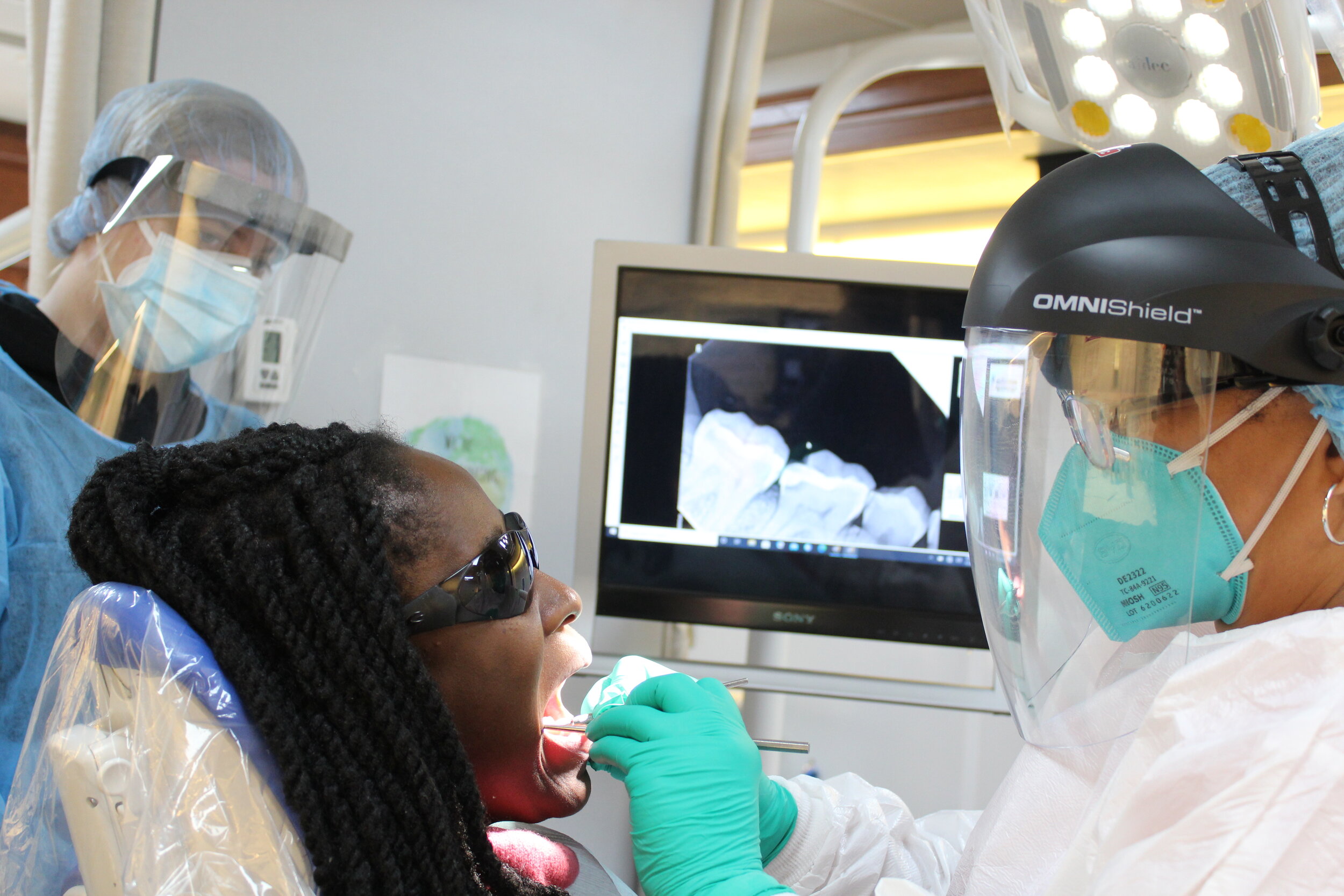300+ Critical Nonprofits Across the Region Received Support to Weather Pandemic
The Greater Washington Community Foundation today announced an additional $2.04 million in phase three grants from the COVID-19 Emergency Response Fund, reaching a combined total of more than $10 million in emergency support distributed to address the public health and economic crisis. The Fund’s rapid response grantmaking helped local nonprofits to expand critical services, ensure continuity of operations, transition to virtual service delivery, and counteract lost revenue due to closures or event cancellations.
In total, the COVID-19 Emergency Response Fund’s impact includes:
Over $10 million raised and invested in regional response efforts
300+ social service and health nonprofits funded
Grants range from $1,000 to $250,000
50% of nonprofit partners led by people of color
Phase three funding was spurred in part by a $1 million dollar commitment from IKEA to support COVID-19 relief efforts in Maryland where some of its facilities are located. IKEA calculated unemployment claims submitted by its employees and donated that money back to the state through a partnership with the Greater Washington Community Foundation to disperse the resources to communities in Montgomery and Prince George’s counties.
Phase 3 Grant Highlights
Improving Food Security
$250,000 to Capital Area Food Bank and its partners to address the dramatic increase in food insecurity among Northern Virginia residents in Fairfax, Arlington, and Loudoun counties and the City of Alexandria. CAFB’s goal is to provide an additional 9 million pounds of food in these areas, including to many disproportionately impacted communities of color.
A $200,000 investment in Dreaming Out Loud to address DC’s food security crisis by connecting fresh and nutritious food offerings from local Black-owned farms in our region to food insecure residents, including 1,300 weekly CSA shares and 150,000 prepared meals.
$188,000 allocated to help Food for Montgomery meet the urgent need for food, support restaurants and farmers by purchasing meals and fresh produce, and to strengthen our hunger relief system.
$200,000 to help resource Get Shift Done for DMV operations through the end of the year. The initiative is paying displaced hospitality workers to help local nonprofit providers prepare food and meals for neighbors facing hardship due to COVID-19.
$214,000 to support food assistance providers in Prince George’s County to make and/or deliver prepared meals, produce, and shelf-stable foods, and to connect food insecure households to additional food resources.
Support for Childcare
$188,000 allocated to the Children’s Opportunity Fund to expand affordable childcare and distance learning support options for up to 1,000 low-income families in Montgomery County.
$150,000 allocated to the D.C. Childcare Reopening Fund, in partnership with Mary’s Center, to invest in a network of local family childcare providers to ensure that low-income children and youth remain in licensed childcare programs that support healthy and safe development.
$50,000 investment in the Early Care and Education Funders Collaborative, led by the Washington Area Women’s Foundation, supporting advocacy efforts to improve early childhood systems infrastructure, expand access to high quality early education programs, and help early educators effectively meet the needs of all children.
$100,000 invested alongside the Community Foundation for Northern Virginia to support local family-based early care providers through the Infant Toddler Family Day Care, a high-impact local provider that will directly support 85 Northern Virginia-based family childcare providers, all of which are led by women of color.
$50,000 to Prince George’s Child Resource Center to provide support and technical assistance to childcare providers to ensure their sustainability and ability to create healthy and nurturing environments for children by helping families and educating caregivers.
Expanding Employment Opportunities
$300,000 allocated to the Equity Fund in Prince George’s County to support programs selected through an open call for applications that are preparing workers for meaningful employment and ensuring that people facing barriers to employment can access high-quality education and job opportunities which pay a family-sustaining wage.
Eviction Prevention and Housing Stability
$150,000 allocated to The Partnership to End Homelessness for work with DC Bar Foundation and other funders to prevent evictions and help low-income residents maintain stable housing. Initial investments will focus on building the capacity of the system to make sure tenants are aware of their rights and can access the rental assistance and other resources that are available.
Previous Funding and Priorities
The COVID-19 Emergency Response Fund was established on March 12, 2020 and administered by the Greater Washington Community Foundation, which also was a donor to the effort. Community Foundation staff in collaboration with a steering committee and working groups, comprised of regional philanthropic leaders, subject matter experts, and local government advisors, met regularly to discuss needs, vet proposals, and coordinate efforts.
The Fund received contributions from nearly 800 foundations, corporations, and individuals. A list of the major contributors to the Fund can be found here.
More than 1,600 nonprofits across the region applied for approximately $60 million in grants. Priority was given to direct service providers with deep roots in the community and the ability to both address urgent needs and reach historically underserved populations.
Phases 1 and 2 (March-August) investments were made across five issue areas:
To provide cash assistance to impacted workers, including hourly and gig economy workers, contractors, and workers excluded from unemployment or stimulus funds.
To bridge the digital divide and expand resources for low-income families, youth disconnected from school or work, and students with special education needs.
To provide PPE and other equipment for frontline workers, expand medical care for marginalized communities, and increase access to mental health support services.
To support individuals, families, and youth experiencing homelessness by expanding access to housing/shelter, health care, and other emergency services.
To help stabilize nonprofits, expand emergency food assistance, address the uptick in domestic violence, and support the civil legal aid needs of individuals and families.
Phase two investments also included funding for advocacy and community organizing projects focused on improving systems for food security, violence prevention, medical care access, affordable housing, childcare, and more.
A full list of the Fund’s grantees can be found here. To learn more about the unique stories of the organizations supported by the Fund, click here for impact videos.









